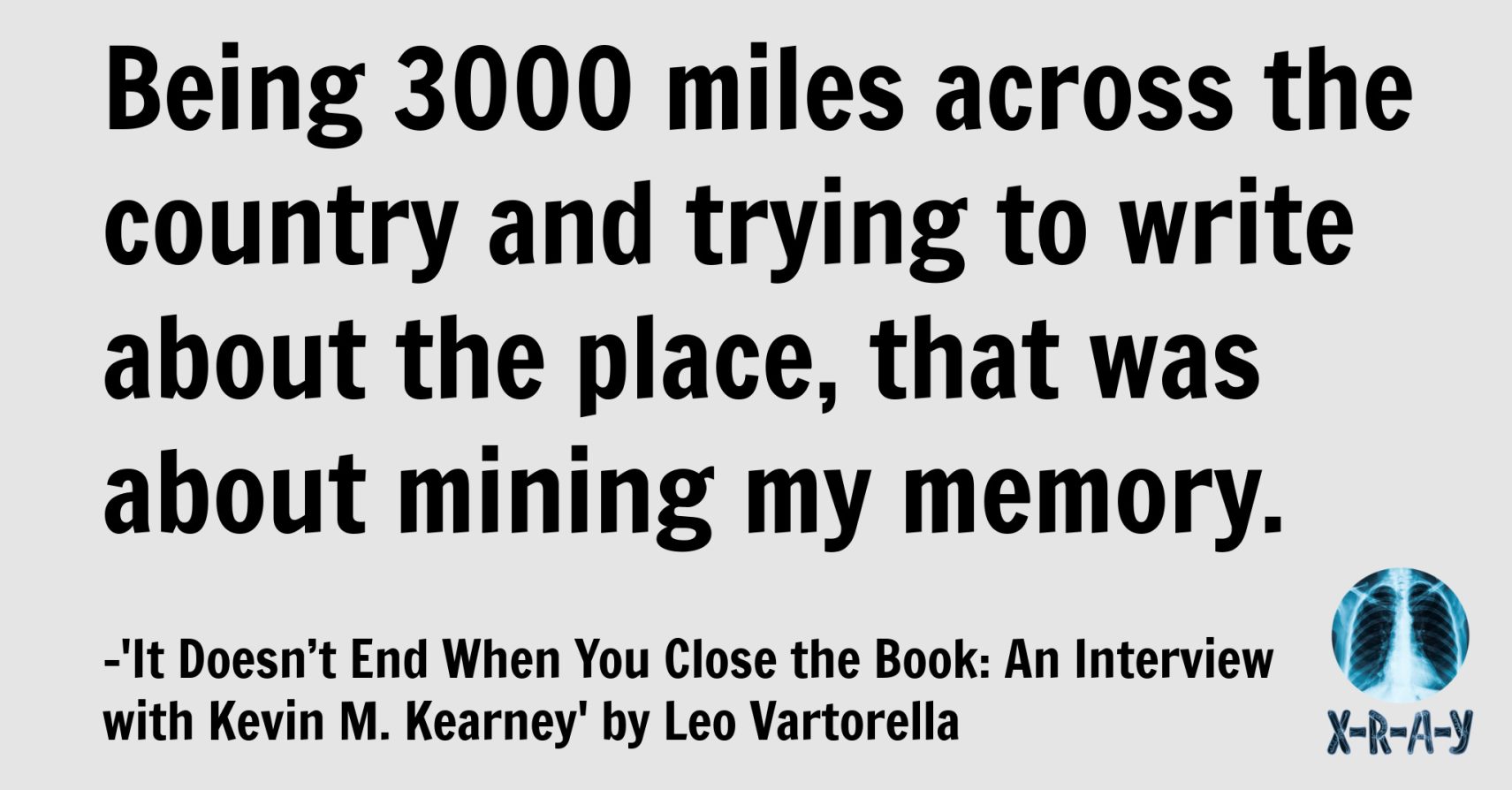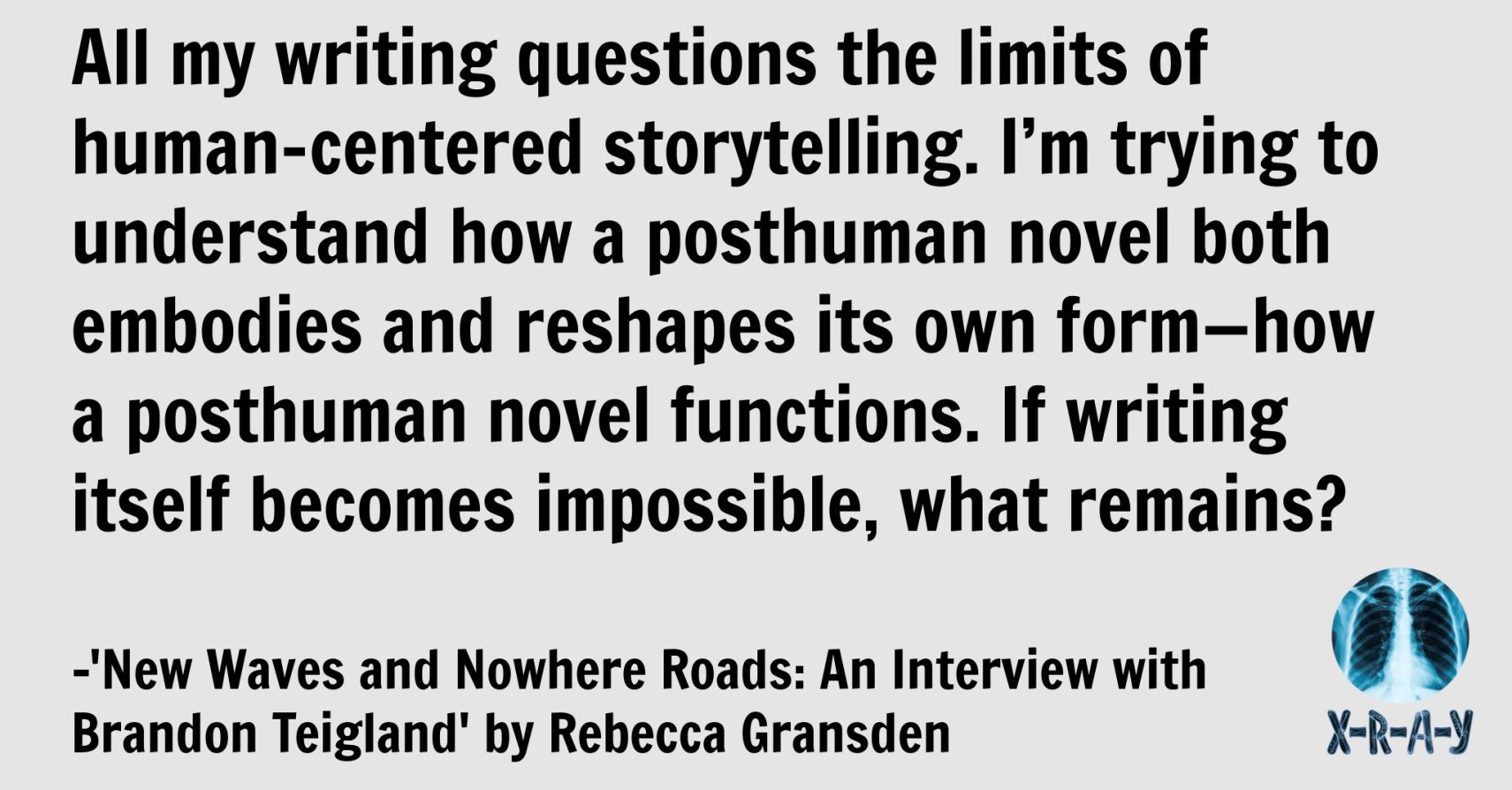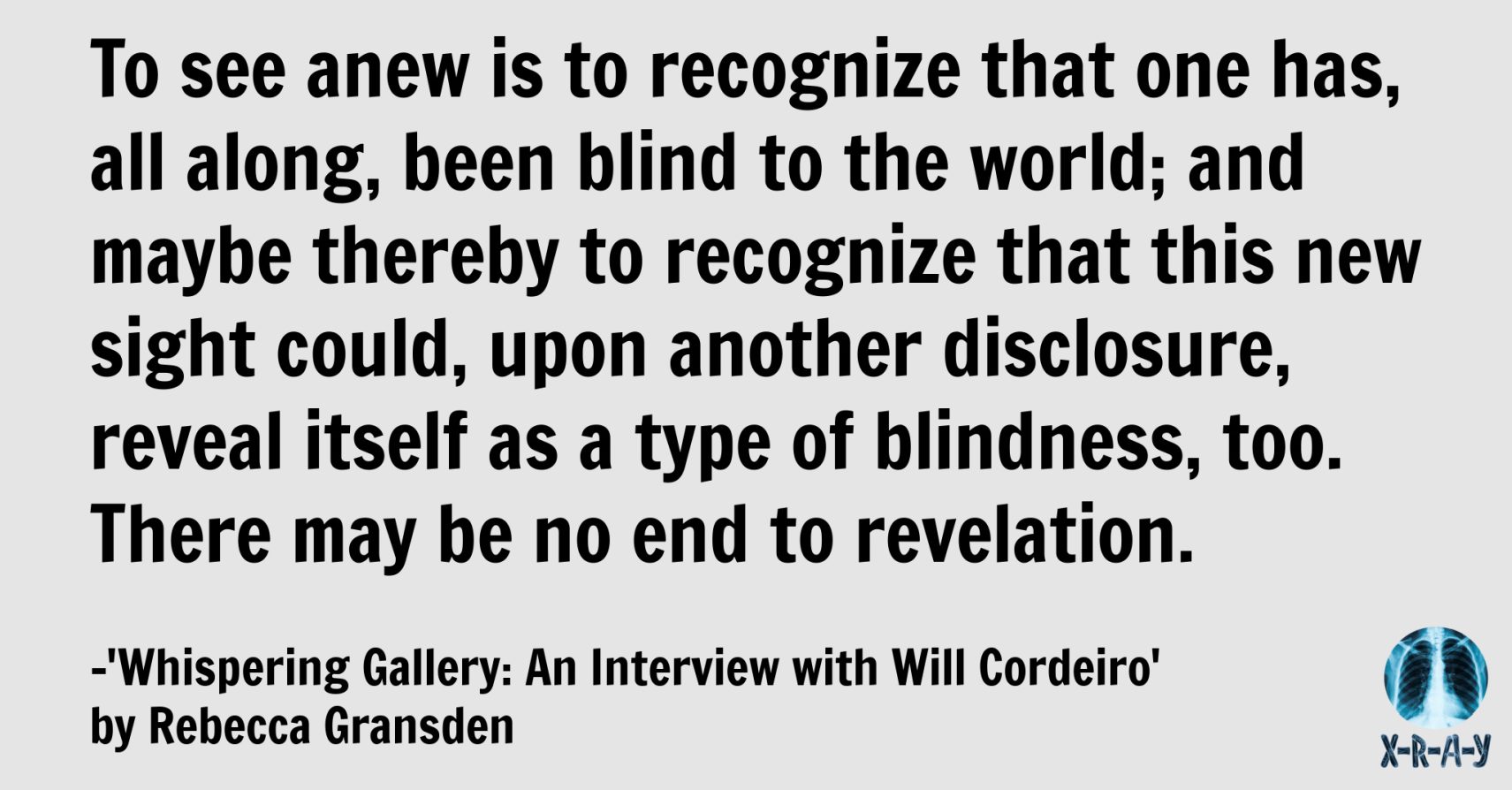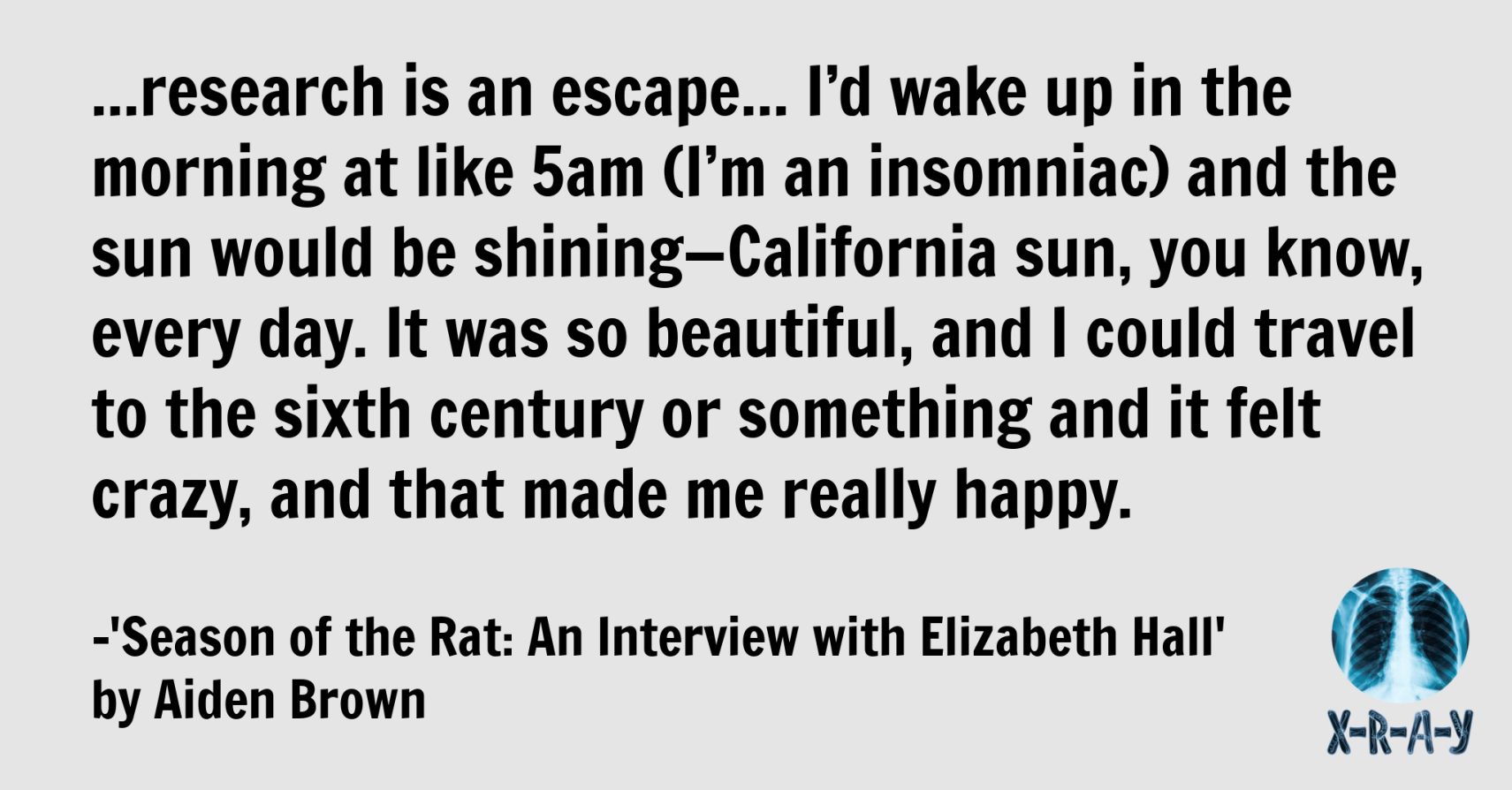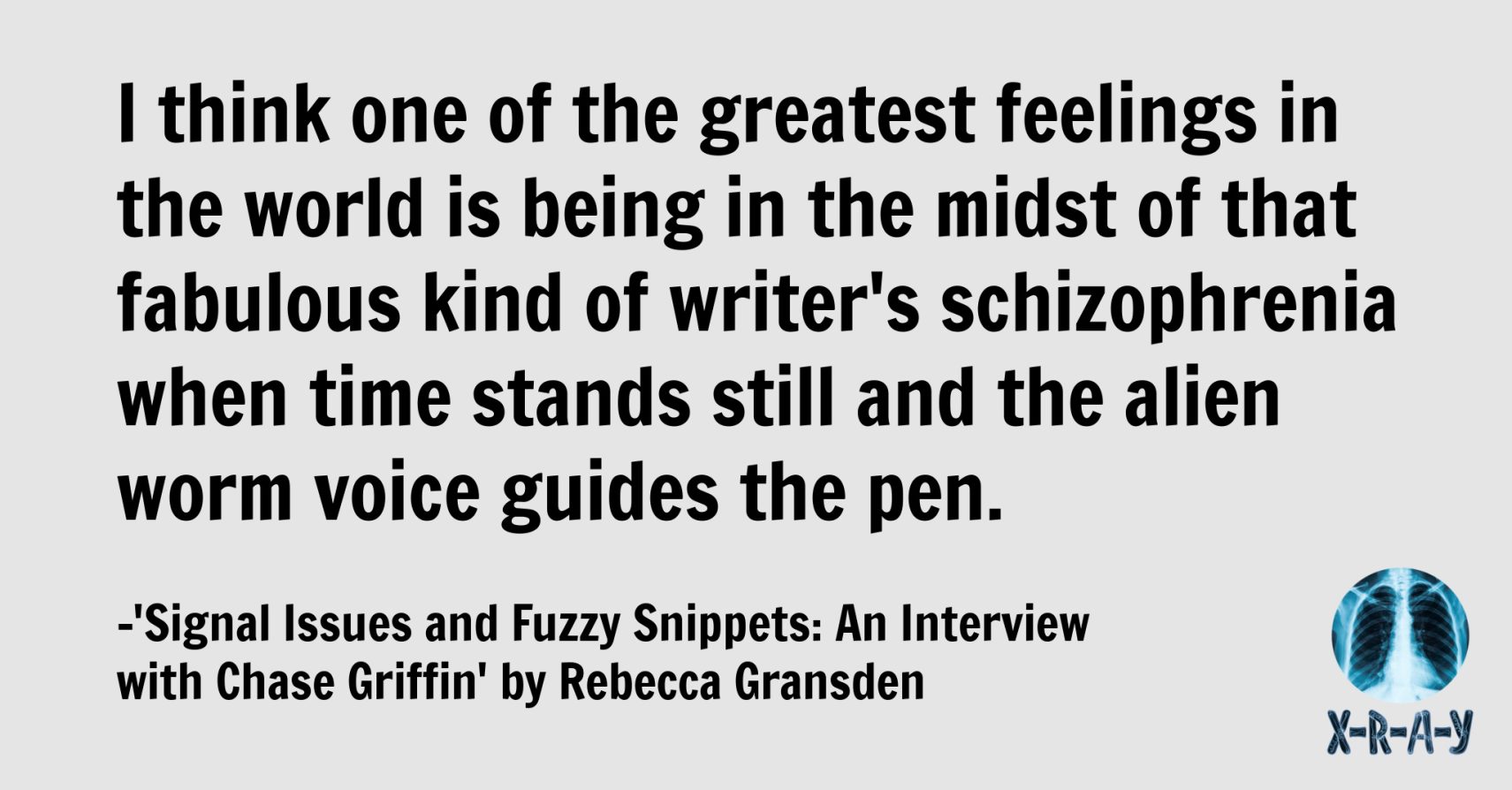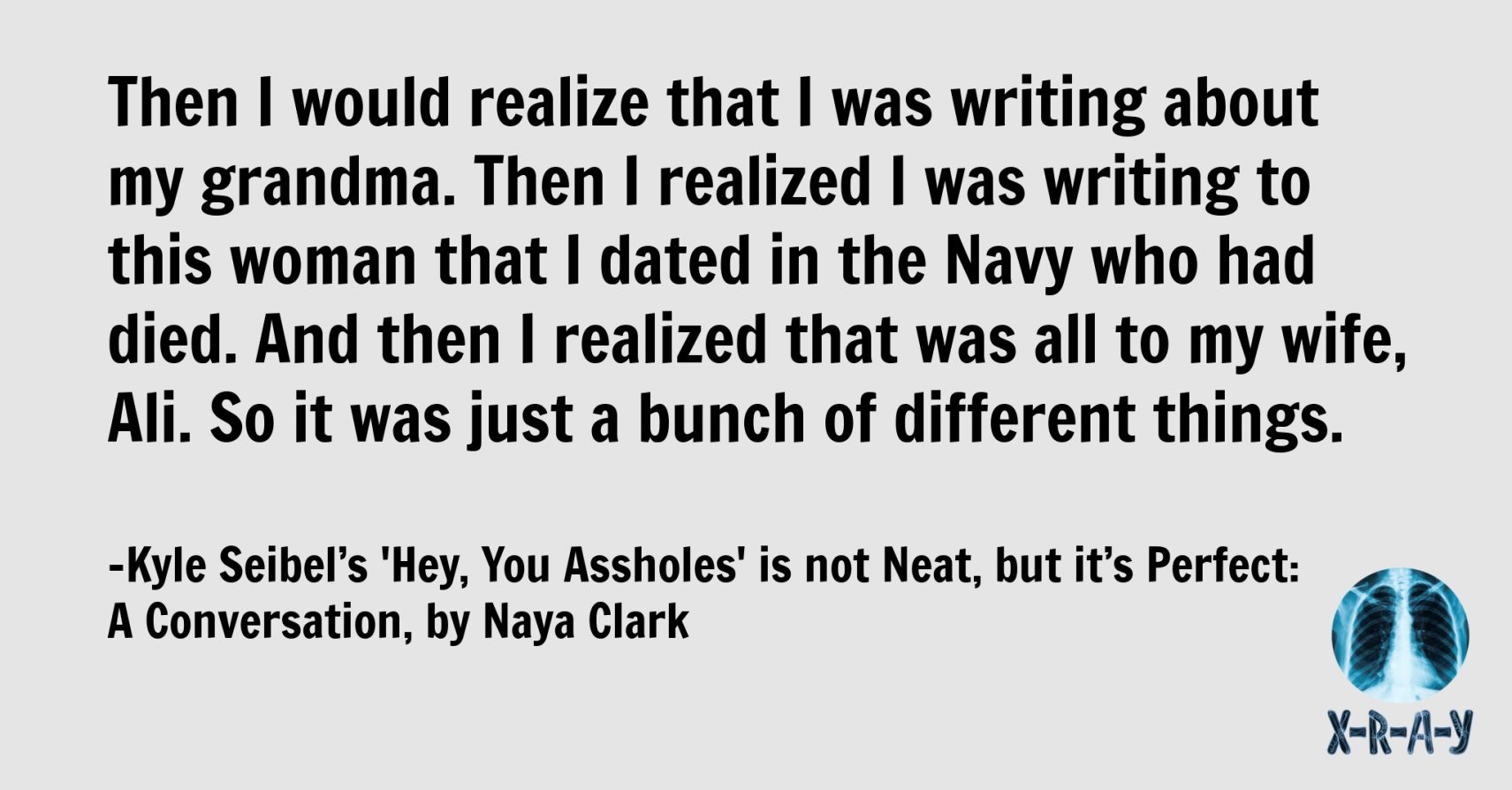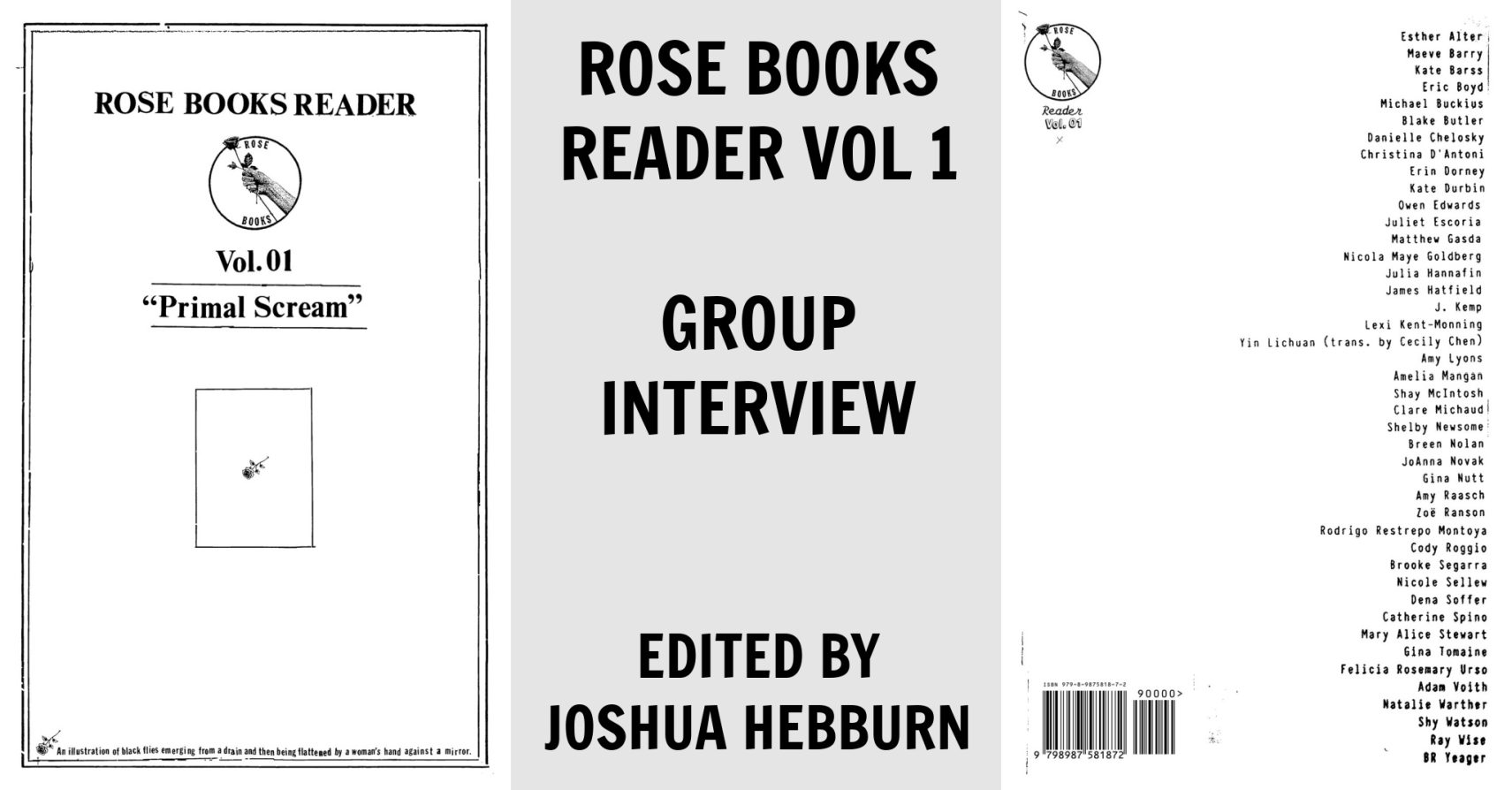
BURIED PATHOLOGIES AND THE ULTIMATE ‘NO PLACE’: An Anti-Interview with Oli Johns by Ryan Raymond Buell
How many people will read this interview? Will anyone read it? Will exactly three people read it—the writer interviewed, the editor interviewing, the publisher publishing … before a handful of thumbs sends it scrolling offscreen in their search for more content?—so much to read and digest, to form a perspective on … I can’t. I don’t have time. Just swipe to the bottom and see if it leaves a mark. It’s hard to know if I watched this or imagined it, but there is probably a cyberpunk anime where someone plugs a metal cord into their brainstem, and the data download is so huge blood trickles out their nostrils and they die, right there in their bedroom in front of the computer screen. Given the current size and capability of the human brain it seems impossible to read everything on the Internet. What if someone forced you to? What if you were then made to think deeply on absolutely everything you read? When someone thinks a thought that no one else has ever come close to thinking does the universe expand or become denser? What kind of instrument would be used to measure this? How much would it cost? Would it make living and working in a factory on the moon worth it? These are some of the kinds of questions I wish I had asked. Novelist and blogger Oli Johns refused an interview with me. “Ask me questions without asking any questions,” he said. “Let me answer using only lines from Ubik.” Here is our encounter, which took place via email.RYAN RAYMOND BUELL: Your blog [psychoholosuite.com] recently reached a milestone of ten years. What were your spacetime coordinates when you realized your physical existence would be forfeited for that of Psycho Holosuite? OLI JOHNS: 10 years is a farmer’s choice, my failure to grow corn and lemongrass at the same time and growing it anyway. 10 years. That’s the number I tell people in the market when they ask me how long I’ve been in Hong Kong, 10 not 18 cos 18 seems unreal. 10 years of slowly becoming nothing but a WordPress site. The novels may as well be burnt plastic. My Cantonese is quite decent. Is that what you want? I’m not comfortable with this at all. Glen Runciter is dead. Or is he? Someone died in the explosion orchestrated by the funniest SF writer of his time, a rabid anti-Communist, anti-Lemmist. He’s not dead. He can’t die. Ads recycle all. First story I ever wrote for Psycho Holosuite was about a guy coming back from the dead and becoming Psycho Holosuite. This was a mistake. MistAAAAke. The whole thing. Tsuen bo do hai gai. How do you feel about it as someone who once wanted to Exit Reality, who's been here for five minutes, who is not that supernaturalist?RRB: I feel adversarial about it, it doesn’t matter. I’m here to toe-test the waters for a new high, maybe drift intermittently on a friendly basis, we’ll see. But I appreciate the reference to my namesake. Question two: How does studying languages outside of English contribute to your penchant for reconfiguring small art-shaped swathes of reality? OLI: [To escape feeling too trapped by performance/dadaism, let’s put real stuff in brackets. Is everything going to be a question? [it doesn’t have to be]. My aim is to bury my real feelings amongst a lot of nonsense, most of it snatched from old notes, old work, your work, Ubik [as I said before], language guides, Cantonese soft sci-fi etc.] [let’s be desperate friends, not adversaries.]].: : : :When it comes to language, I’m skimming the pages, looking for another landscape with one mother and one threat. It doesn’t happen that often. My mother just wants to be left alone, for psychological reasons. She says she can speak French but I’ve tested her several times and now she’s gone. If she had stuck around, she would’ve understood that surrealism/absurdism hinges on [ ]. Language learning rides on the wing of that. In Cantonese, the spoken and written are often estranged from each other—you shouldn’t write out that which comes from the throat—so I accept that and shove idioms in. Hand write them like a primary school kid, scan them, remove the background [god willing, if there’s substance to it] and just shovel them into my work. It always makes sense despite this, despite me. To be honest, I’m only really competent in Cantonese, Japanese, French, Farsi, Portuguese, Slovene, Urdu, Swahili and Urdu. Six of those are make-believe. I read a book once. You put a guy from Pakistan in front of me, I’ll forget how to say ‘nothing.’ I can’t speak Urdu. The writing system is beautiful. Can’t speak French either, unlike every single person in the UK. Is this answering the question? Too artificial? At some point, this is going to get annoying and I want to stay on top of that. If you come to live in Hong Kong, locals will say, why aren’t you learning Mandarin? I feel contaminated by my choices. Another language I’m not fluent in is the occult. Sorry, Elytron [ and now [x]].Recently, I’ve started learning Yaqui.It all builds up into several thousand different ways of pretending you’re actually expressing yourself.Me a language?I’ve wanted to say this for a long time. In Perma Neon O, there was a page with an extract from Red Moon [Chinese sci-fi, erratic], fully written out in Chinese by my hand, aligned to the right, opposed by white space. It said something about me that no one will ever understand, even those who understand Chinese. Should I have deleted that?RRB: [I don’t see you as a true adversary. But the tone felt that way to me, which I honestly found exciting. But I agree, desperately colliding friends it is. Right now, the way I see it is that the interview starts with questions for the sake of form [there are also some actual thoughts I genuinely want to ask you about] but eventually your chaotic sense-destroying responses draw me into a helpless dialogue, the questions becoming other ends of an equation, or responses to your outputs, until the typical interview structure is imploded … ] [with this next one feel free to respond with simulations and nothing but, when it feels right I’ll respond in kind … provoking me a little might help with this, maybe by my fifth question I’ll have no choice but to give up asking things] What new genres of literature should be invented? OLI: [Never really thought about this before re: inventing genres].One of the below: modernism but 80’s but soft SF but more absurd but semi-real, something unafraid of aesthetics/faculty of association, prole stuff, my stuff, their stuff, Chinese stuff, xeno-esoterica, or not my stuff, I’m just copying Tyson Bley, though it looks like he’s moved on to shriek music now.I’ve moved locations, those kids were irritating.I’m not copying him, I just say it to ground myself.[Aren’t there enough genres already?]I subbed a beautiful picaresque to Solarpunk Magazine last year about an anarchist alone and miserable in the Kuiper Belt, and they didn’t like it. There’s hope in that. I’ll never sub anything to anyone ever again. Not sure they’re even a magazine. What I really wanna do is just keep scrawling out lines from Cinema II // Deleuze and superimposing them on screenshots from Santa Claws and Alienator and Mystics in Bali.[don’t think I have a good answer to this. Trying to analyse why I’m so uncomfortable in this process/reverting to absurdism. It’s not an interview but feels like it is. I’m afraid [terrified maybe] that one of these lines is gonna be extracted and framed in the promo-box, and without context, my work dies. Almost all work does].Is snuff a genre?Or is it core?Solar-, Cyber-, Modernist, aesthetic, synth-, steam-, hard-, soft-, there’s always a camera, always a Liz Short bisected into...this...kind of real out of artifice yet still not real, not even close.I’m Khleb-punk and here’s my manifesto: ‘Japan In White Guy.’[Karina Bush might be a genre, and that would be the end of her. Leave naming to others. Enjoy anonymity + hope it hurts].[you should keep these bits in, I think it might add something].[People want to be confused]RRB: [your responses are meaty and complicated enough that I feel unable to respond without sounding like a dick…I wonder if saying art dies without context is like needing genre conventions through which to view it, which is maybe why it’s difficult to imagine a new one without falling back on variations of what’s already here.][A lot of your work plays off genre, or uses it as a vehicle for what feels like an [un]selfconsciously permeable mind [yours?] open to any information it encounters, considering rejecting revisiting…maybe the thoughts happening in that mind would make no sense without the context of genre [sci-fi for KRV, Perma Neon O, etc.] but they would still exist as a puzzling artifact made out of typed [and scribbled] thoughts, which they seem to be already.] In your novel KRV, the narrator struggles to imagine utopian societies springing up on the dwarf planets of the Kuiper Belt, while in the far backdrop of the story, the 2019-20 Hong Kong protests are taking place. Bliss shifted into low gear—if we had regressed twenty, maybe thirty years the psychological spacewalks extended in a garish mask. “Please, Mr. Runciter.” Those green tumbled stones. The toaster dissolved as a sullen refrigerator perceived her breasts. [Hadn’t cracked my copy of UBIK for a long while. Feels good.]Utopia translates to ‘no place’—is outer space a suitable no place? OLI: I delayed replying to this [to watch Light Shop—not awful but rooted in melodrama, characters are ‘no thing’—with my wife] and lost about 14 good ideas in the process. Actually, I remember one of them, to lift lines from an interview Jung did about the afterlife just before he died and then doctor them a little. I won’t do that now, seems cheap somehow.Your ‘only shown/visible via existing genre conventions’ is very quantum. I don’t disagree. Why worry about inventing something new when you won’t really understand how it came about, where it originated from? I don’t think about ‘the new’ at all cos I have no marketing arm. Scrawling + scanning + shock collage are nothing new. My stuff is new in that no one’s put things in this exact order before. New is paralysing. New is elasticating. New new new new new noo new. KRV is old-new, basically a lost Barry Malzberg piece, a superior alternate to Galaxies, which I struggled with live in one section of KRV cos it performed itself as a new genre within sci-fi + nowhere else + did not go far or quantum enough. It felt playful, philosophical, not desperate or enraged. The first time I read it I never made it to page 98, the 3 cyborgs bit, which it desperately needed. I said ‘superior’ just now and maybe shouldn’t have, but I need to back myself + KRV is rooted in something real and intimate whereas Galaxies is not. Though parts of it lose me a little, parts of KRV, I mean. Some of the writing in the middle is sloppy, the notes can be repetitive past the line of tolerance etc. Last winter, I hated it in a vague way, from my memory of writing and editing it. This winter, it’s ‘pretty good.’ Does Galaxies loop itself like this? [I read that Malzberg has just died. You can delete this part, if you like. Maybe I’ll go and re-read Galaxies, give it more of a chance. Start on page 98, the 3 cyborgs. Should I? Can you will something to be better than it is? Other writers I respect adore it, adore Malzberg. Adore what exactly?]This is getting close to becoming a de-con-struc.Triton is the ultimate ‘no place’ for me to bury my pathologies on. Most of my work visits there at some point. Not visits, situates. [I didn’t know ‘utopia’ translated literally as ‘no place.’ Is that true? [I just checked, it is]. Does that mean ‘place’ is an innately degraded/degrading thing, cannot have replicators or Picard’s dream state? I could never write a utopia, only the failed attempt at one [due to my miserable psyche]. The Kuiper Belt is so tempting to superimpose that on as there are 10,000+ dwarf planets out there, one for each marginal ideology, and the huge distance gaps between them inconveniences imperialist gunships looking to “monitor” things...but also isolates colonists/private interests that could expand their psychopathy, and this is all make-believe anyway. There’s just something comforting about being on an icy moon away from subject-others who will eventually become object-others when my brain turns on me.Is Triton a genre? De-con-struc?That’s what my thoughts—I’m happy you’re reading Ubik again—look like without genre, probably a pathetic way of diverting fromRRB: [Imagining something that cannot be imagined has its appeal for me, though. Not new for the sake of it, but an actual ‘no place’ waiting to be revealed. [I still have religion in me.]Probably the only way to get there though—even tho it’s not possible—is through old methods newly ordered [ and even then it’s only new in that a baby or a cloud doesn’t exist until you see or give birth to one] … ][who knows what this is at this point, maybe I’ll delete everything except the brackets]I wondered about that, how ‘live’ the process of writing was compared to your parallel existence outside the book. KRV feels like a live blog plotted out via improv while the narrator [his name is Gulag?] is next to incapable of writing anything without endlessly outlining and restructuring his screenplay [his own thoughts] into what ends up feeling like a [maybe] permanent stasis. [VOID ROOM 9]You mention the difficulty of achieving this kind of non-development or regression of character at the end of your de-con-struc of I Saw the TV Glow. Is this where the desperation and rage ends up, forced to live? OLI: RRB: When I first encountered your work, I tried to understand the images. Now, I think I try and let them resonate. But it’s an interesting question, RE: trying to understand. It feels like an important part of your nature as a creator: What’s this guy’s internal monologue like anyway? Must have a non-stop de-con-struc going off all the time—brushing his teeth, chewing plant matter [vegetarian?], drawing spaceships—does he ever get a break? What is the relationship between your writing and your images? Do you see them coming from the same place? Ejaz was my favorite character in KRV. I’m glad he has a press named after him. What kinds of writing [besides notes-only novellas] do they specialize in? [You don’t have to answer any of these. I hope you know.]And lastly, is time travel possible outside of sci-fi? [Don’t worry, I think we’ve crescendoed…just need to find our way to a vanishing point.]OLI: [RE: 50+ Q's: you can always edit them in later, I don't mind].[I’m running out of ideas. Maybe I should try to be more direct, tell you about the time I nearly snapped my arm off while arm-wrestling? Or make up a story about killing a piglet? This is already genuine, I’m not masking—much of—anything].To be honest, I do not 100% understand what a noosign is, or a lectosign, but I still went ahead and used it in several of my novels. Or I did understand it and now I forget. Maybe no one understands it [100%].Talk about discipline?My shot at a cento [Black Hole Cento] had about 27 quotes and only 4 of them could be bothered to fit [into each other].Why would anyone do this to themselves?If I was shit at it, they must be too.I think it was Parmenides who said, people who go to Oxford and Yale are smart in an academic sense but can’t wrap a present properly, can’t interpret Total Recall without being told beforehand what it means by a superior interpreter [same with me and Lost Highway, I had to be led by the hand by KB Toys—Bill Pullman doubles as the devil, Patty Arquette is half-Thai surprise], can’t speak Cantonese, can’t do collage the way I can.[Time travel? I don't know]. I won’t be a pedant and say we’re travelling through time right now, or time is just a construct. I know what you’re asking of me. If it does/can happen, will there be chaos or a collection of master-editors trying to fix all incursions e.g. Timecop. If it can/does happen, it is happening now].Any philosophical insight I possess is purely accidental, I’ve barely read anyone + have no desire to.[I started writing this answer before you sent me the question. I’m sorry for putting us both through this, I thought it was a good idea but now I’m not so sure. Feels like I’m actively draining 2 separate brains. Was gonna mix in lines from interviews by Karina Bush + Gary J. Shipley + others, but now that I’m describing it...][On the other hand, I’m sure there are some good answers in here somewhere, just need to sift out the dirt].[My mood might be bad cos I got a rejection yesterday [my birthday!] from a sci-fi mag I have never read, a mag that pays. I need to make money out of this at some point].[RE: my brain: I know my friends don’t self-analyse/self-castigate like I do, but I assume at least some artists do/did. Don’t you [do it]? I know you said that, when writing Exit Reality, you wanted to disassociate from yourself/reality. Did you stop wanting to do that? Or did you succeed to a certain degree?RRB: [[[[Happy [belated] birthday!]]] I also recently got rejected from a sci-fi mag I have never read [one that pays]—within 24 hours of submitting, too. It felt refreshing to not have to wait six months, though.]Most of my writer friends are neurotic as hell. I’m no different. But your work seems unique in that those self-analyses and -castigations are almost a stand-in for narrative or a protagonist. That may not be the most accurate characterization of all your writing [I haven’t read everything], but it’s a mode that seems effortless, natural to you.I can imagine a novel from you that pushes this tendency to such extremes as to becomeutopic. [I feel like you’re kind of on fire at this point, I wanna give the black hole room to expand.]RE: money making: Would you take a job [well-paying] in which neuro and computer scientists study and map your consciousness while you do nothing but consume and create art, but their research helps addict billions of unborn children to destructive technologies? [This can be the last question[s].]OLI: The TV had receded back a long way; he found himself confronted by a dark, wood-cabinet, Atwater-Kent, tuned radio-frequency oldtime AM radio, complete with antenna and ground wires. God in heaven, he said to himself, appalled, elated. Just one more answer to try and hold it all together. But why hadn’t the TV set reverted instead to formless metals and plastics? I just remembered, a reporter for Ming Bo [Newspaper in HK] interviewed me about 16 years ago. Those, after all, were its constituents; it had been constructed out of them, not out of an earlier radio. He’d found a copy of The Atheism Jab [a collection of not very good short stories, my first stab at writing] in a local info-shop [now long gone] and wanted to know why someone would do that. Perhaps this weirdly verified a discarded ancient philosophy, that of Plato’s idea objects, the universals which, in each class, were real. Can’t picture what I said to him, it was too far back, but he did say afterwards that I sounded angry. The form TV set had been a template imposed as successor to other templates, like the procession of frames in a movie sequence. I hope I don’t sound that way today. Prior forms, he reflected, must carry on an invisible, residual life in every object. I hope I’ve managed to hide it a little, at least, or bury it deep inside the de-con-strucs. The past is latent, is submerged, but still there, capable of rising to the surface once the later imprinting unfortunately—and against ordinary experience—vanishes. Or it could be that I don’t hope that. The man contains—not the boy—but earlier men, he thought. Anger should drive me. History began a long time ago. Shouldn’t it?[Yes, UBIK, again. Without design. I randomly flicked, first time, to page 139 and the words were already there, awkwardly perfect. This is the satan-wave of experimentalism, I believe].Was the sci-fi mag [that rejected you] Clarkesworld? They have a fast turnaround. I must’ve been ‘rejected within 2 days’ around 50 times for them. I’m pretty sure I’ve tried everything, every type of story. You’ll never get in there, comrade. You'll never get past their network of AI elves. You = WE.[btw, I said I hadn’t read that other SF mag [that I got rejected from], but I do read stories sometimes, to see what kind of standard they’re looking for, that I can later fail to emulate. I liked one Clarkesworld story, by Kij Johnson, ‘SPAR’ [not the supermarket]. The rest-...I don’t want to rant. Just wish they’d loosen their guidelines a bit, or hire my mum as a first reader]. I'm an anarchist, I would never sign up to anything large scale.I'm an anarchist, I would never sign up to anything large scale.I'm an anarchist, I would never sign up to anything scaly.I'm an anarchist, I would never sex up anything large scale.As an anarchist, I would never sign up to anything large scale.I'm the Bye Bye Man, I would never sign up to anything large scale.I'm an antichrist, I would never sign up to anything large scale.I'm an anarchist, I would never sign up to anything like this.I'm an anarchist, I would never sign up to anything large scale.I love kids and they love me, the more unborn the better.If this is the end then thanks cos I would never speak like this in real life. No one would ask me.[RE: UBIK + random page: thinking back a bit, it wasn't that random, I knew the latter half of the book would have parts where objects and the environment started to regress to an earlier form, and I aimed for roughly that area. Within that, it was random [my second flick - the first didn't go deep enough]. Perhaps a neat example of my "method" overall]]]].[Ubik is great to read, I miss books like this]


